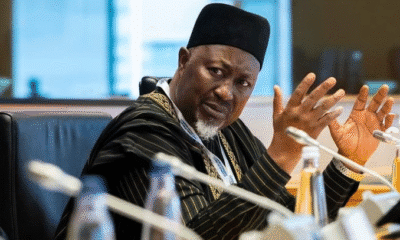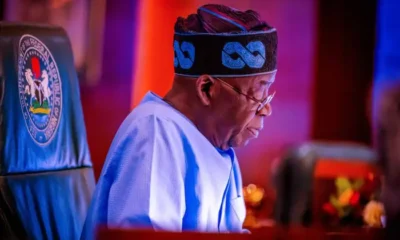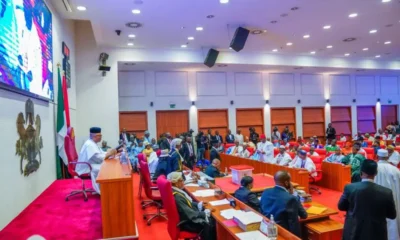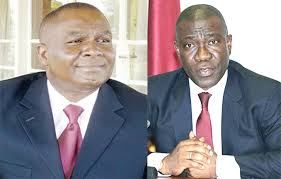Breaking News
Senate Clears Tinubu to Borrow ₦1.15tn Locally for 2025 Deficit
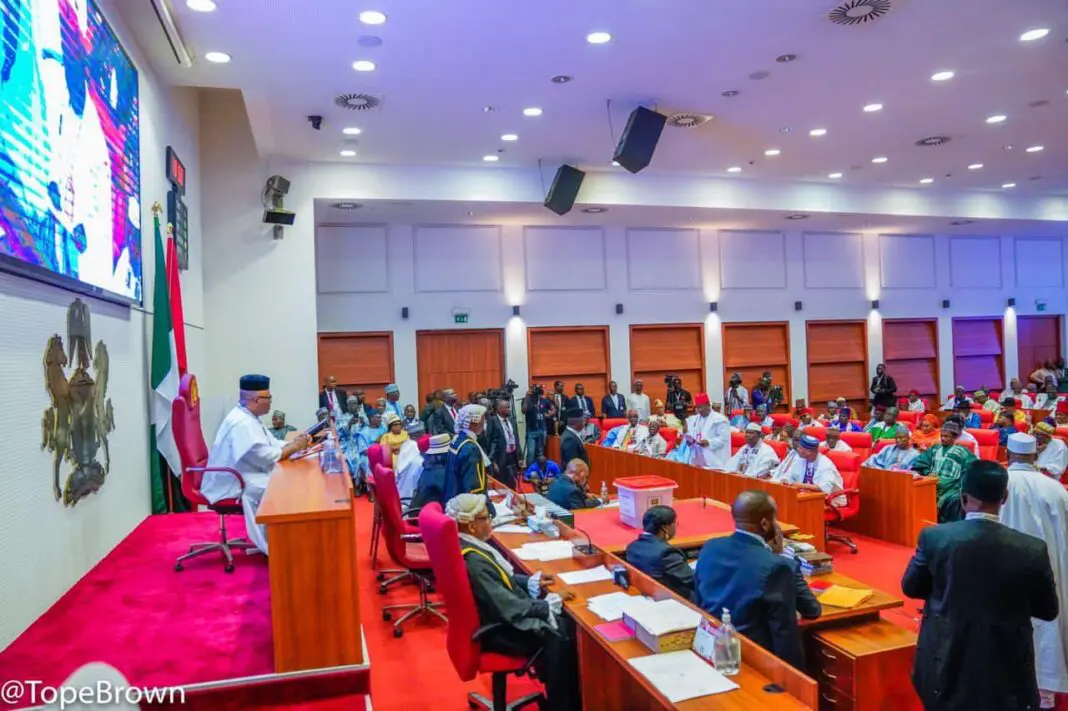
The Senate has approved President Bola Tinubu’s request to raise ₦1.15 trillion from the domestic debt market to finance the unfunded portion of the 2025 budget deficit.
The approval followed the adoption of a report by the Senate Committee on Local and Foreign Debt during plenary on Wednesday.
2025 Budget Deficit Hits ₦14.1tn
Presenting the committee’s report, the Chairman explained that the 2025 Appropriation Act provides for a total expenditure of ₦59.99 trillion, an increase of ₦5.25 trillion from the ₦54.74 trillion initially proposed by the Executive.
This expansion, according to the report, created a total budget deficit of ₦14.10 trillion. Out of this amount, ₦12.95 trillion had already been approved for borrowing, leaving a funding gap of approximately ₦1.15 trillion (₦1,147,462,863,321).
“The additional borrowing will be sourced locally to bridge the remaining deficit and ensure the full implementation of the 2025 fiscal plan,” the report stated.
In a related motion sponsored by Senator Abdul Ningi, the Senate directed the Committee on Appropriations to intensify oversight on the utilisation of the borrowed funds.
The motion, which was unanimously adopted, mandates the committee to ensure that the funds are used strictly for their intended purposes and in accordance with the provisions of the 2025 fiscal framework.
“The Senate must ensure that every kobo borrowed is applied judiciously and transparently,” Ningi said. “We cannot continue to approve loans without seeing tangible results that impact Nigerians directly.”
Nigeria’s debt profile has continued to attract public scrutiny amid growing dependence on borrowing to fund recurrent and capital expenditures.
The 2025 budget, passed last month, was pegged at ₦59.99 trillion with a revenue projection of ₦45.89 trillion, leaving a ₦14.10 trillion deficit, representing about 5.3% of the nation’s Gross Domestic Product.
The Federal Government plans to finance the deficit through a combination of domestic and external borrowings, multilateral loans, and proceeds from privatisation.
Analysts, however, have cautioned that Nigeria’s increasing domestic borrowing could crowd out private sector access to credit and worsen inflationary pressures if not properly managed.
Despite these concerns, the Senate reaffirmed its support for the administration’s fiscal strategy, emphasising the need for efficient implementation to stimulate growth, create jobs, and stabilise the economy.

